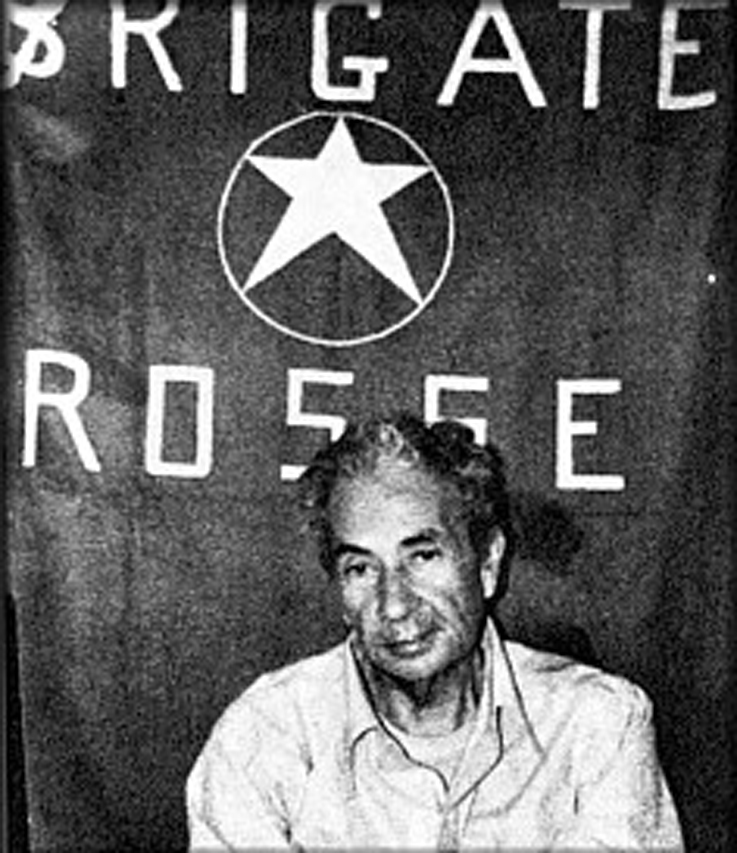The Moro Séance #2: The Protagonists March 11, 2016
Author: Beach Combing | in : Contemporary , trackback
In the previous post Beach introduced the Moro Seance. Here instead let’s go into more detail about the actors around the table. There were, by most accounts, twelve people including girlfriends, in the house that day but three names stand out: Romano Prodi, Mario Baldassarri and Alberto Clò. The three names were all economics professors and all would go on to hold high office. Indeed, Romano Prodi, would later in his life lead the Italian left, and was twice Italian Prime Minister. He later became, 1999-2004, the European President and was responsible for managing the introduction of the Euro. Mario Baldassarri later in life became a ‘post-fascist’ politician and a vice-minister in one of Berlusconi’s government. Alberto Clò, who owned the house where the séance took place and whose brother also took part, served in an earlier technocratic government in the mid late 1990s. None seem the type to give way to the temptations of spiritualism, in fact Clò and Baldassari have both gone on record as saying that they do not believe in contact with the spirits: and Prodi has always sold himself (convincingly) as a good catholic. So what actually happened?
We know that, 2 April 1978, the participants called on the spirit of Giorgio La Pira, one of the great Christian Democrat leaders, and for many years an inspired if eccentric mayor of Florence and an anti fascist priest Don Luigi Sturzo killed by the Germans. Roman Prodi later recalled the details of the sitting. He found himself in front of the Moro Commission, a legal body to determine what had happened to Moro, so this was not a casual interview. The date of his testimony came 10 June 1981.
‘It was a rainy day and we did ‘the game of the plate’, a term that I barely know because it was the first time that I tried something of that type. The words ‘Bolsena’, ‘Viterbo’ and ‘Gradoli’ came out. Nobody had any idea: then one of us, in an atlas, saw that there was a village called Gradoli. We asked if someone knew anything and given that no one knew anything, I decided that it was my duty, even were I to seem foolish, as I feel at present, to pass on the information. If there had not been that name in the atlas, or if the name had been Mantua or New York, no one would have passed the information on. The fact is that the name was unknown and so I passed it on.
(Era un giorno di pioggia, facevamo il gioco del piattino, termine che conosco poco perché era la prima volta che vedevo cose del genere. Uscirono Bolsena, Viterbo e Gradoli. Nessuno ci ha badato: poi in un atlante abbiamo visto che esiste il paese di Gradoli. Abbiamo chiesto se qualcuno sapeva qualcosa e visto che nessuno ne sapeva niente, ho ritenuto mio dovere, anche a costo di sembrare ridicolo, come mi sento in questo momento, di riferire la cosa. Se non ci fosse stato quel nome sulla carta geografica, oppure se fosse stata Mantova o New York, nessuno avrebbe riferito. Il fatto è che il nome era sconosciuto e allora ho riferito.)
Just to put this in context, Bolsena and Viterbo are large and close to Gradoli. Gradoli was not well known: it was a small village outside Bolsena. This was what was said to have interested the party: its very anonymity. Prodi contacted the police rapidly and took the information to Rome on 4 April. The raid on the village of Gradoli took place 6 April and turned up, of course, nothing. It would be interesting to understand if the police undertook that raid knowing that they were basing a day’s work on a séance or whether the news of the séance only came out afterwards. Italy was, even by its own high standards, a strange place that spring as the hunt for Moro became more and more desperate. Tomorrow the interpretations.
Other thoughts on the Moro Séance: drbeachcombing At yahoo DOT com


